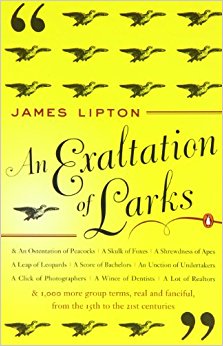Does it deserve to be capitalized? I think so.
 All of my reading these past few weeks (when it’s not the New Yorker…) has been consumed with Steampunk. I adore it. Really. It’s amazing.
All of my reading these past few weeks (when it’s not the New Yorker…) has been consumed with Steampunk. I adore it. Really. It’s amazing.
I started with the basics. Steampunk edited by Amy and Jeff Vandermeer and Steampunk Prime edited by Mike Ashley. The Vandermeers also have a second volume called (cleverly enough) Steampunk II: Steampunk Reloaded, but I haven’t started reading it yet. The two Vandermeer volumes are more contemporary–they start with stories written in the 70’s and 80’s. Steampunk Prime is a collection of older stories written between 1895 and 1920.
So far I like the older stuff in Steampunk Prime better. It feels genuine (if such a thing can be said about Steampunk). In the first Vandermeer volume the writing seems more contrived…and generally not as good. I’m hoping the Steampunk II volume is better–it has a Clockwork Century story by Cherie Priest in it and I love her.
As far as actual novels go, one of my favorites is The Iron Duke by Meljean Brook. Brilliant. I would definitely recommend it. And steamy and sexy,too–that Iron Duke is a hotty. Her whole concept is fantastic. I totally got caught up in it. Another good one is Clockwork Heart by Dru Pagliassotti. Less of the romance novel feel to it that Brook’s book has, but still a very sweet love story and awesome ideas.
I’ve read more for young adults. The His Dark Materials trilogy by Philip  Pullman is Steampunk and is amazing, of course. A less famous series is The Bartimeaus Trilogy by Jonathan Stroud (which may actually have four books in its trilogy–or I guess they’re calling The Ring of Solomon a prequel).
Pullman is Steampunk and is amazing, of course. A less famous series is The Bartimeaus Trilogy by Jonathan Stroud (which may actually have four books in its trilogy–or I guess they’re calling The Ring of Solomon a prequel).
Maybe not technically Steampunk… Maybe Magicpunk… No. No, I’m making the call. I’m definitely saying it’s Steampunk.
Whatever. It’s phenomenal. Clever, funny, interesting…downright brilliant… The final ending is a little rough and I was a little hostile towards Stroud for a while, but after thinking about it, he definitely did the right thing. Bartimeaus is the snarkiest djinn you’ll ever meet. He thinks in footnotes. ‘Nuff said.
Cherie Priest is also one of my new favorites. She’s the author of Boneshaker and Dreadnought. She also has a super fun website and blog. Loads of personality and the funny stuff. And she’s a fantastic writer. Just got Dreadnought and I’m saving it for that perfect rainy day when I can snuggle up by the fire and disappear for a while. Just read them. You won’t be sorry.
Another good one is Scott Westerfeld’s Leviathan and Behemoth. (Yep. Same guy who wrote the Uglies Trilogy.) More the rollicking adventure story type that takes place in an alternate version of World War I. If I had to be honest, I would say Priest’s books are more for the girls and Westerfeld’s more for the boys. Not a lot of emotional retrospect and time for thought for Westerfeld’s crew. You had better climb up into your war machine Clanker and get a move on if you want to keep up.
Priest’s books are adventure and action, too, and the story definitely moves along, but you feel like you know the characters a bit better. And she writes all of her characters well–cranky airship pilots, worried mothers, 16-year-old sons… Part of it is certainly deliberate–Westerfeld’s books are definitely for a younger age. His books have amazing drawings and maps that I stare at for a long time. Priest’s map is minimal and the second book doesn’t even have one, which makes me sad. (I adore maps. I flip back and forth between the book and the map all the time trying to figure out exactly where something is. Adore. Them.)
Point is, you can’t go wrong with either one. For some reason the whole Steampunk thing appeals to me. It’s a fabrication, but it’s familiar enough that I don’t feel like I’m swimming through some murky sea of sci-fi or fantasy trying to figure out the dragon’s name or remember just how many arms that creature does have. I appreciate the clever changes and alternate ideas, but basing them in my own world isn’t that difficult because that’s exactly what the author has done. It just works better for me. A fantasy of compromise. Or a compromised fantasy? Hm. Neither of those sounds right, do they?
Cherie Priest also has other books that she’s written, and I’m tempted to try them. But I’ve been burned before on that. Meljean Brook writes vampire/werewolf paranormal romances as well. I tried one of those. Meh. It didn’t even feel like the same author. But Brook also has a short story (“Here There Be Monsters”–it’s in a collection of short stories called Burning Up) set in the same world of The Iron Duke and I loved it. So I’m not willing to risk Priest’s other books just yet. Maybe after I’ve finished Dreadnought and am desperate for something else.
And my favorite feature of all these books? Yes, they’re all available on amazon.com or you can get online to the Multnomah County Library. You’ll have to put some of them on hold because they’re so popular (which is why I didn’t review The Wind-Up Girl by Paolo Bacigalupi–haven’t been able to read it yet because I’m 97 of 112 holds or something ridiculous like that) but it’s the best deal out there.


